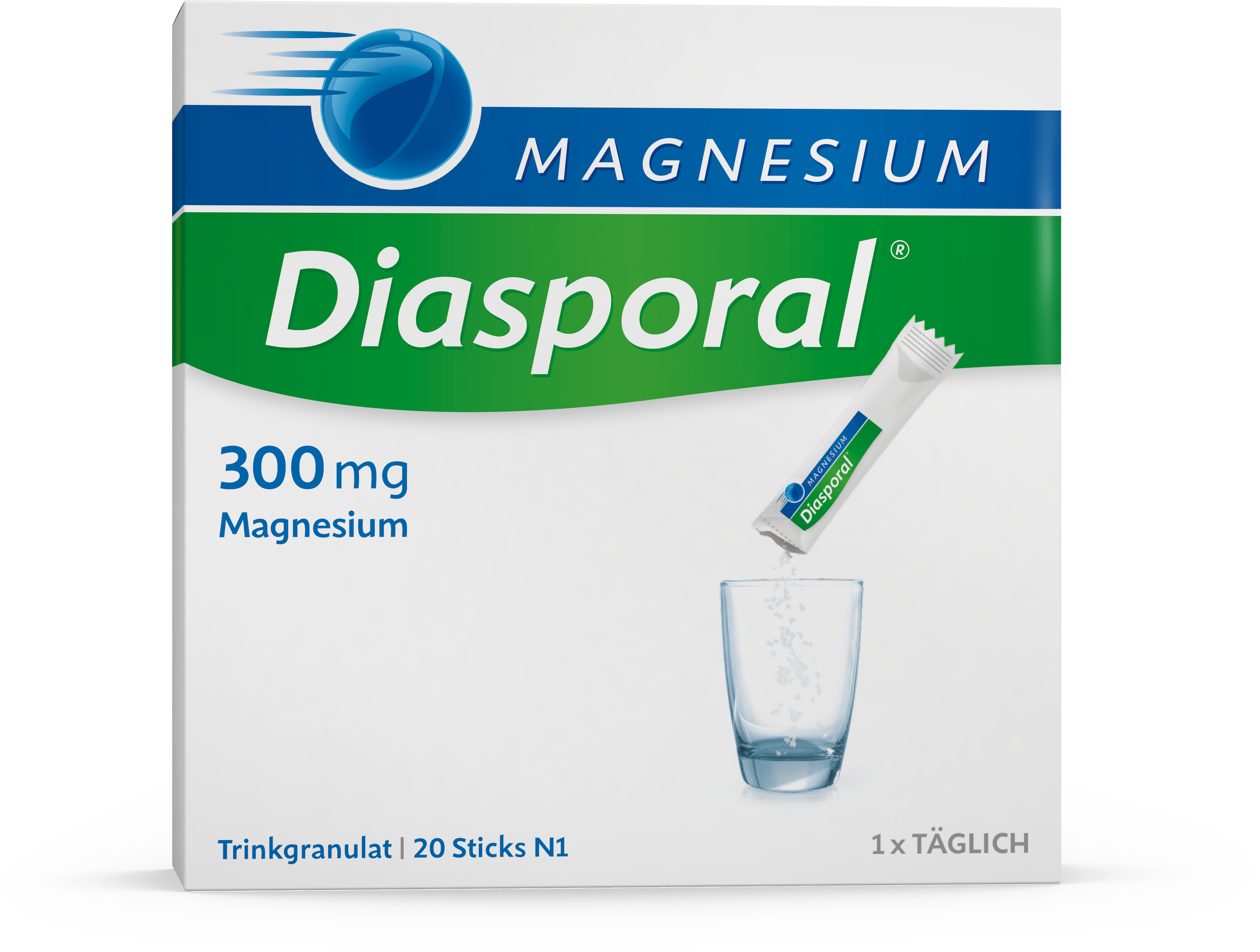
Magnesium and cramps
HOW DOES MAGNESIUM DEFICIENCY CAUSE MUSCLE AND LEG CRAMPS?
People who suffer from muscle and leg cramps often compare them to a lightning strike because they occur suddenly and cause overwhelming pain. Cramps can affect our day-to-day functioning and can wake us from a sound sleep. They are often caused by an acute magnesium deficiency. Magnesium is responsible for many processes in the body. It enables the muscle and nerve cells to "communicate" well and helps our muscles relax after they contract. A magnesium deficiency leads to uncontrollable tension in the muscles, resulting in cramps.
WHY DO LEG CRAMPS USUALLY OCCUR AT NIGHT?
Leg cramps are not only troublesome but can also be very painful. The older we get, the more likely we are to experience leg cramps.
Up to 50 per cent of people over 65 have them at least once a week.
Leg cramps disrupt our sleep. They are often caused by an acute magnesium deficiency. This is because magnesium levels are subject to our circadian rhythm. As such, they fluctuate throughout the day and are lowest at night or in the early hours of the morning. For this reason, it is advisable for people who suffer from leg cramps at night to take magnesium in the evening.
WHAT ARE THE POSSIBLE CAUSES OF A MAGNESIUM DEFICIENCY?
Certain life circumstances, eating habits, diseases and medications can lead to a magnesium deficiency and symptoms such as muscle and leg cramps.
Life circumstances
- Pregnancy and breastfeeding
- Stress
- Exercise
Medications
- Acid blockers for heartburn (e.g. omeprazole, pantoprazole)
- Diuretics
Diseases
- Metabolic diseases such as diabetes
- Cardiac arrhythmia
- High blood pressure
- Headaches and migraines
Eating habits
- Overall unhealthy eating habits
- Diets
- Excessive alcohol consumption
WHAT INCREASES THE RISK OF CRAMPS?
In addition to naturally fluctuating magnesium levels, various life circumstances and behaviours can further deplete our reserves and lead to a magnesium deficiency. For example, magnesium requirements increase in women who are pregnant or breastfeeding. This is because the baby obtains the mineral from the mother. Furthermore, certain diseases may lead to impaired absorption or increased elimination of magnesium. Finally, an unbalanced diet has an impact on our magnesium intake. People who regularly suffer from cramps and identify with one of the causes described here should take active measures to restore their magnesium levels.
HOW CAN MAGNESIUM BE USED TO TREAT CRAMPS?
Regular muscle and leg cramps as well as tension are usually due to an acute magnesium deficiency. Taken regularly, high doses of magnesium will treat the actual cause of the leg cramps, i.e. the magnesium deficiency, rather than just manage the symptoms in the short term.
For the treatment to be effective and successful over the long term, the following factors need to be considered:
- Correct dosage: The World Health Organization (WHO) recommends a daily dose of 300 mg of magnesium to treat magnesium deficiency.
- Supplementation for a longer period: To reverse a deficiency and counteract symptoms, an adequate dose of magnesium must be taken for a longer period of at least 4-6 weeks. For acute deficiency symptoms, such as leg cramps, magnesium should be continued even after the symptoms have subsided.
If muscle cramps occur despite magnesium supplementation, a doctor should be consulted about the symptoms, especially if this is accompanied by other symptoms, such as numbness, tingling or muscle weakness.
If leg cramps occur at night, magnesium should be taken in the evening before going to bed. A granulated drink mix is ideal in this case.

